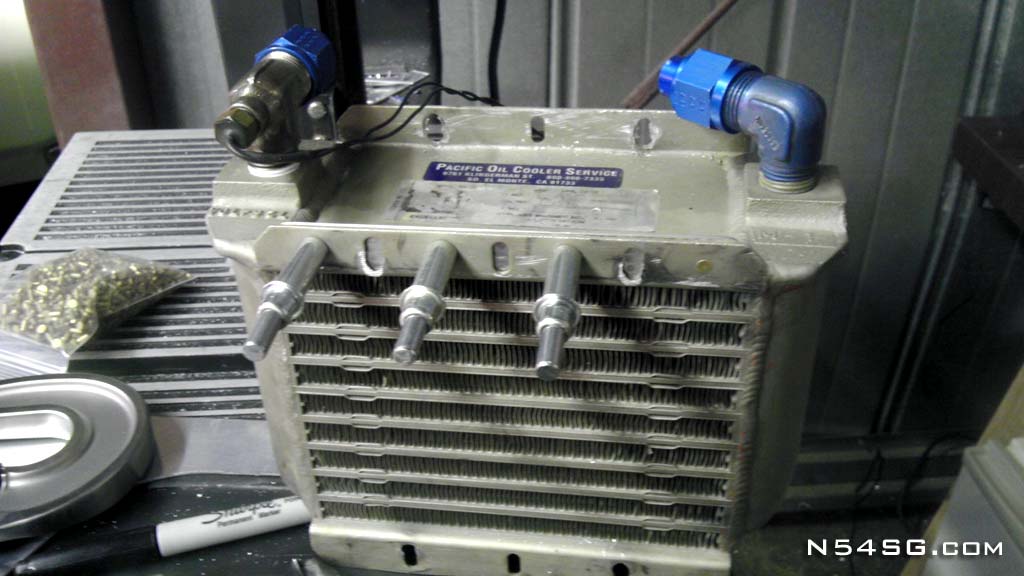The Study of Cooling: Comprehending Oil Cooling Systems in Car Engineering
In the realm of automotive engineering, ensuring optimal motor temperature is crucial for ensuring performance and longevity. One of the main components contributing to this balance is the oil cooler, a mechanism that plays a vital role in controlling the temperature of the engine oil. When engines work more intensively and produce additional power, they also produce extra heat, making efficient cooling methods essential than before.
Oil coolers are engineered to remove surplus heat from the motor oil, enabling it to keep its viscosity and lubrication properties. This process not only improves the performance of the engine but also protects the mechanical components from potential damage caused by overheating. Comprehending the function and importance of oil coolers can provide valuable insights into the overall performance and longevity of a vehicle. In this article, we will examine the principles behind oil coolers, their importance in vehicle engineering, and the various types that are commonly used in modern times.

What’s an Oil Cooler?
The oil cooler is a crucial component in vehicle technology created to manage the heat of motor oil. By keeping optimal oil temperatures, the cooler ensures that the oil can carry out its critical functions effectively, which include lubrication, cleaning, and heat capture. A cooling unit usually consists of a collection of tubes or fins that release heat, letting the engine oil to reduce its temperature before it returns back into the engine.
The operation of an oil cooler stands comparatively straightforward. As the engine runs, it produces heat not only from combustion but also from contact between mobile parts. The oil captures this heat, but if it becomes too warm, it can shed its viscosity and lubricating attributes. The oil cooler mitigates this issue by transferring heat away from the oil, often using airflow or coolant to improve the cooling system. This assists to maintain the correct viscosity, securing adequate lubrication.
In intensive or rigorous applications, oil coolers are even more necessary. These environments may subject the engine oil to increased temperatures due to greater loads and lengthy operation. Therefore, a lot of modern vehicles are equipped with oil coolers to boost engine trustworthiness and durability by avoiding oil breakdown and ensuring optimal operating conditions for the engine.
How Engine Coolers Work
Coolers operate by facilitating the transfer of heat away from the motor oil, making sure that the oil maintains an ideal heat level for efficient lubrication. When holden trax oil cooler , it produces heat that raises the temperature of the oil flowing throughout the engine components. If this lubricant gets too hot, its thickness decreases, leading to a decline in its ability to provide lubrication and protect the engine. The oil cooler, carefully placed within the car's temperature control system, plays a critical function in regulating this heat level.
The operation of an oil cooler typically involves a series of tubes or fins through which the hot oil flows. As the oil circulates, it travels through these tubes, allowing heat to dissipate into the ambient environment or coolant. The design often features a heat exchanger that optimizes the surface area for heat transfer, enhancing cooling efficiency. The chilled lubricant then returns to the engine, making sure that it functions within a healthy temperature range, promoting durability and effectiveness.
In furthermore to aiding in temperature control, oil coolers also contribute to overall motor efficiency. A efficient cooler system allows the engine oil to maintain its slippery properties for longer duration, which means fewer frequent oil changes and lessened wear on componentry. This is especially important in high-performance or rigorous vehicles that face elevated operating temperatures. By maintaining optimal oil heat levels, oil coolers not only enhance motor performance but also increase the car's dependability and duration of use.
Advantages of Employing an Oil Cooler
One of the main advantages of using an oil cooling system in car applications is the improvement of engine durability. By keeping proper oil temperatures, oil coolers prevent degradation of the oil, which can lead to increased wear and tear on engine elements. When oil works outside of its optimal temperature limits, it can lose its slippery properties, resulting in friction and possible damage. An oil cooler aids to control these temperatures, ensuring that the engine runs effectively for a longer period.
Another significant pro of oil coolers is enhanced performance during stressful driving conditions. In intense situations, such as hauling heavy loads or driving in extreme temperatures, engine oil can heat up rapidly. An oil cooler aids remove this heat more efficiently, which can lead to more consistent engine performance. When the oil keeps cool, it reduces the risk of overheating and protects key parts of the engine, allowing for more stable power delivery and quickness.
In conclusion, oil coolers contribute to enhanced fuel usage. When engine oil keeps a stable temperature, the engine can operate more effectively. This effectiveness correlates to lower fuel consumption, as the engine does not have to labor harder to overcome the negative effects of overheating oil. By reducing friction and allowing for more seamless operation, an oil cooler not only aids the engine but also provides financial benefits for drivers through enhanced fuel economy.